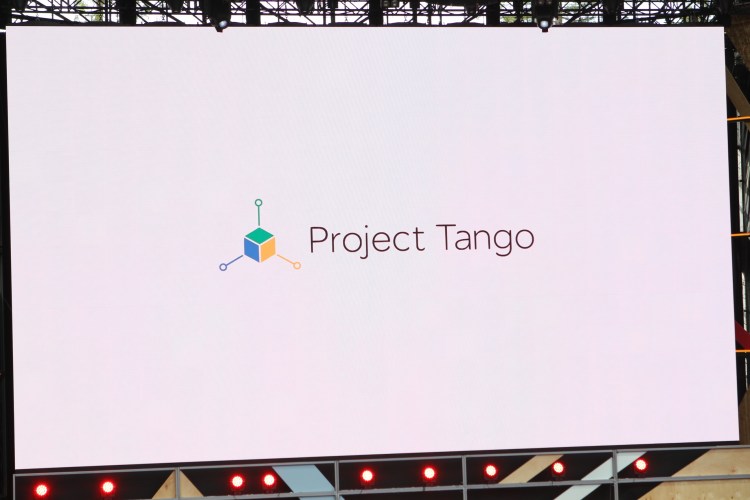For three years now, Google has been working on its Project Tango augmented-reality (AR) technology for mobile devices. For three years, non-Googlers have been waiting patiently to use it. But in a few short weeks, Lenovo will be launching the first Tango-compatible smartphone that is intended for consumers.
Demos over the years have been exciting. And today, at the Google I/O developer conference in Mountain View, California, there were more demos that made the system look even more promising.
There was an improved measurement app that recognizes edges and can then be used to measure the dimensions of windows, tables, and other objects. The app can retain the corresponding images but also present schematics, which can then be used for other purposes, like identifying the right size tablecloth or curtain set to purchase.
There was an app that let you put a dinosaur in the middle of the room and then tap the plus button a few times to make it look huge in the middle of the real-life environment in the background.
There was an app in which you could select furniture and have a model of it unboxed and placed right next to you, so you could see if it would be a good fit.
There was an app that made little flowers sprout in the middle of the floor.
Can you get augmented reality with other systems? Yes. But this is mobile, which will make it more accessible to more people, just like Google Cardboard for virtual reality (VR) and just like Google’s new “high-quality” virtual reality platform, Daydream. If developer kit prices are any indicator — $512 versus $3,000 — Tango will not be nearly as expensive as, say, Microsoft’s HoloLens.
Just as Daydream is only on Android, Tango is too, at least for now. People who prefer iOS may have to wait before something like this gets baked into the operating system — it was not very long ago that Apple bought AR startup Flyby Media.
Today, Johnny Lee, who works on Project Tango at Google and previously worked on Kinect at Microsoft, played a video that demonstrates the latest research projects.
There is no guarantee that any of these experiences will ever become available for consumers to try out. But so what? You can see what will be possible. Developers will take things further.
And that’s exciting.
VentureBeat's mission is to be a digital town square for technical decision-makers to gain knowledge about transformative enterprise technology and transact. Learn More

